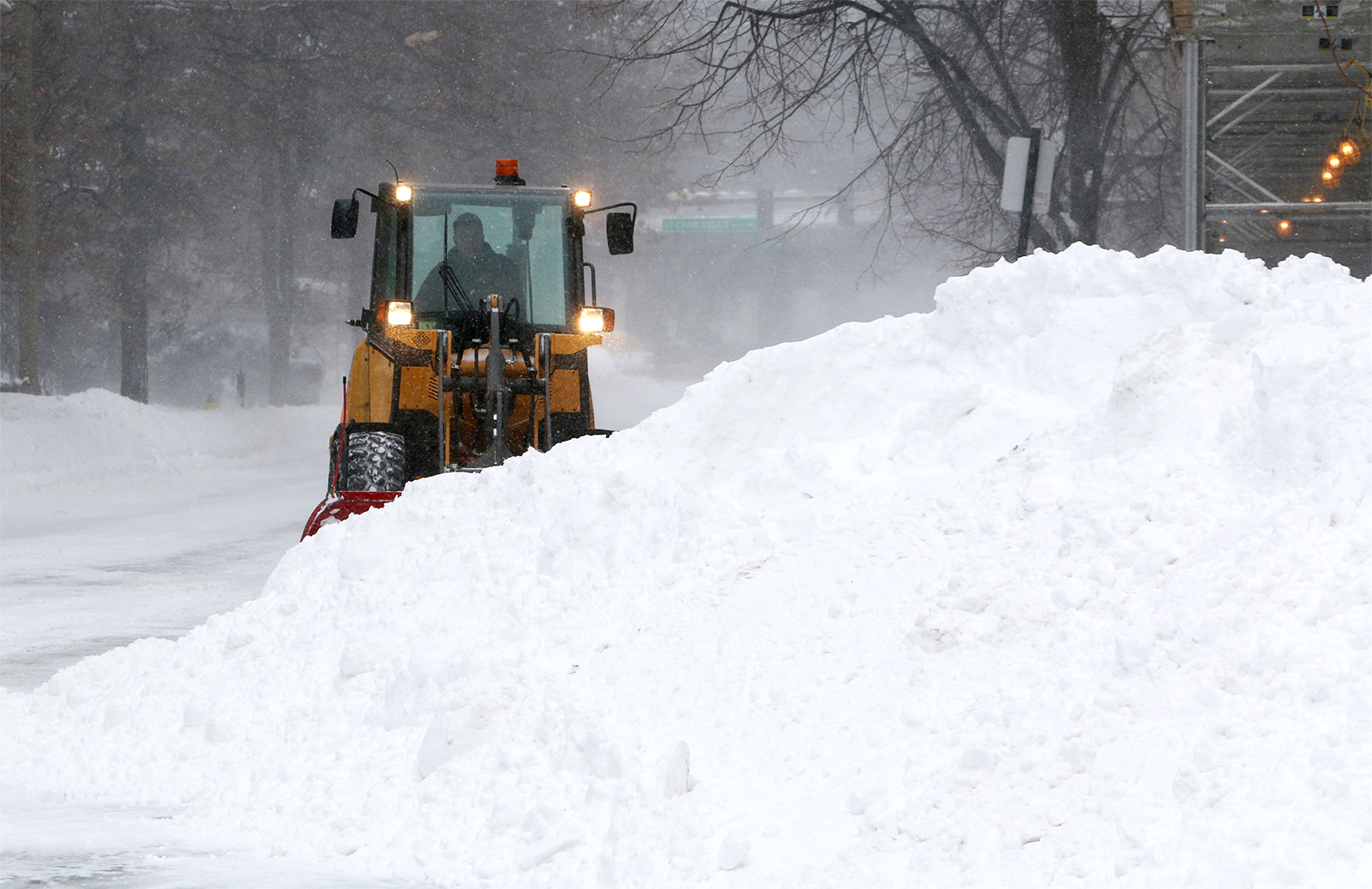
Optimus Ride, a Boston-based self-driving vehicle startup, released a quarterly report that identified inefficient snow removal as an obstacle to self-driving cars in the city.
The report noted opportunities for infrastructure improvement in Boston, with more substantial snow plowing efforts being the primary recommendation. Roadside snowbanks inhibit the turning mechanisms on automated vehicles and obstruct lane markings so self-driving cars are unsure if they are inside the lanes, the report states.
This was the first winter during which Optimus Ride tested its autonomous vehicles. This has given its research scientists the opportunity to ensure self-driving technology can be “just as safe — or safer — than a human driver.”
“Much like human drivers approach driving in the snow with caution, inclement weather creates unique challenges for our cars’ ability to understand and respond to road conditions, like reduced visibility and icy roads,” the report states.
Ice reflectivity was also mentioned in the report as causing obstructions to automated steering, due to “sun-blindness.” Optimus Ride stated that it plans to use the findings of the quarterly report to improve its vehicles’ responses to harsh weather conditions.
Nicholas Evans, an professor of philosophy and engineering ethics at the University of Massachusetts Lowell, studies the dilemmas that result from technological innovations, particularly self-driving cars.
Evans has been studying and devising safety algorithms for automated vehicles since he was awarded a National Science Foundation grant for his research last August. He explained that snow banks and broader issues with Boston’s infrastructure interfere with the sensors automated vehicles use to navigate the city.
“The cameras on these cars detect lanes by looking for white markings on the road,” Evans said. “Snowbanks might look like large lane markers, when most Massachusetts drivers know that’s not the case, depending on how big the snow bank is.”
Sarah Carlson, 28, of Brighton, said she would be nervous to drive in bad weather if she had to worry about self-driving cars malfunctioning on the road.
“When I’m already worrying about driving in snow, the last thing I want to worry about is a self-driving car getting in the way and causing an accident because the snow throws off their sensors,” Carlson said. “They’re going to have to fix those issues if they ever want self-driving cars to be safe for the road.”
Evans identified unclear signage, poor road quality and indistinct lane markings as some of the primary obstacles for self-driving vehicles in Boston. He said the City needs to improve road surfaces and lane markings to accommodate for the growing automated vehicle industry.
“The lane markers are so worn in some regions that cameras won’t see them in light rain, much less snow,” he said. “In others, they are painted over one another in ways the might cause cameras to read the lanes as veering off the road.”
Although Evans is an advocate for integrating automated technology in Boston, he said he is unsure if the City will commit to servicing other forms of public transit should the self-driving car industry expand.
“My worry is that as autonomous cars become more popular, the City will lose the political will to provide transit options that reduce congestion, save energy and help the low-income residents of the city,” Evans said. “I’m concerned autonomous vehicles are giving cities political cover to opt out of their obligations to plan smart, accessible cities for all.”
Richard Walters, 35, of East Boston, said he hopes Boston will support the automated vehicle industry, while continuing to fund supplementary transportation methods.
“I’m a fan of the new technology and self-driving cars, but I can’t see myself ever being able to afford one,” Walters said. “As someone who’s personally reliant on the T, I think the City is going to have more issues if it stops funding alternatives for Bostonians who can’t afford the latest technology.”






















































































































